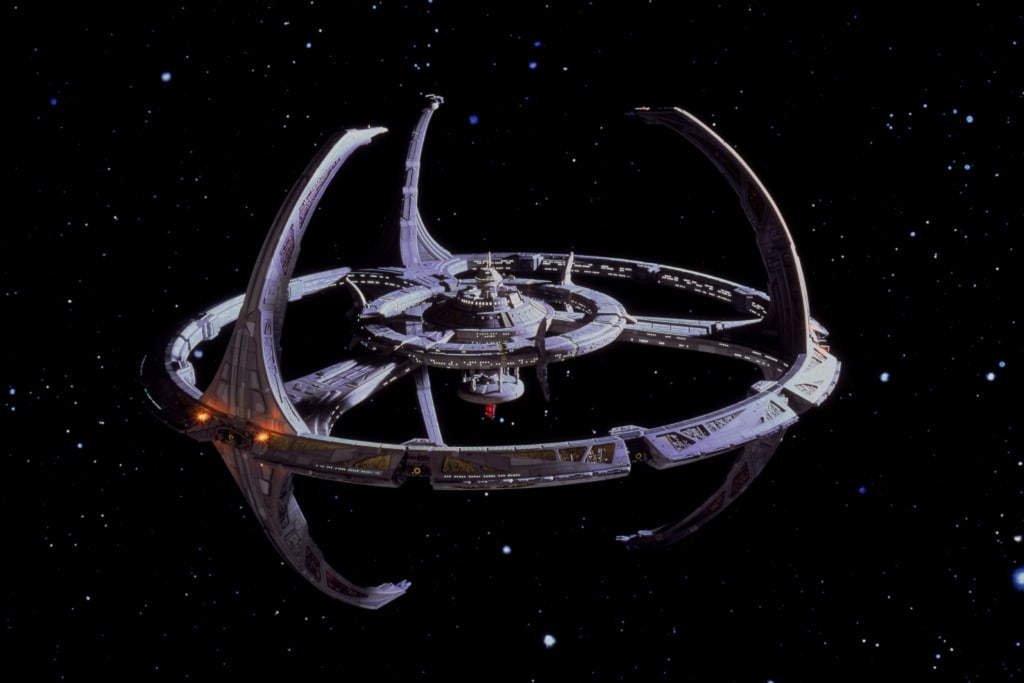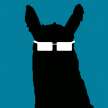Why 'DS9' Is the Most Faithful Trek Series in the 21st Century
Roddenberry's Vision, 'DS9', and the Modern World Collide...

In my opinion (and I'm sure others), Deep Space Nine is one of, if not the best, iteration of the Trek franchise. It is not only a great Trek show, it's also a great piece of drama, writing, character development, and storytelling. Upon re-watching it recently (frankly, this has started to become an annual tradition for myself), I began thinking about why some fans might feel that it is not as faithful to the great bird of the galaxy's original vision for what the show's concept is. Was it just one far-out concept too far for Trek? Were the writers too eager to bring conflict to the characters? The show has had its critics — one example being George Takei, who regarded it as a polar opposite to Gene's philosophy and ideals. Even Roddenberry himself was skeptical before his death in 1991. However, I've since come to realise that DS9, in the modern world, has possibly and inadvertently become the most faithful vision of Gene's philosophy and ideals in recent memory.
Trekkies or Trekkers (I've never understood the difference between the two) are more than aware of Star Trek's underlying message and philosophy. It's the core of the show. It's the angle that has viewers coming back for more and new fans joining in. For the sake of argument and for those not completely familiar with this, the show displays what humanity may develop into in the future. War, poverty, and hunger are eliminated on Earth, and the United Federation of Planets is a peaceful collective of people, cultures, and planets. Although the show is about exploration and discovery, it's also about a progressive future of mutual and beneficial cooperation, with the yearning to improve oneself.
Before any Trekkers/Trekkies get upset with me, I am by no means disregarding the other versions. Of course the Original Series is the,well, original of Gene's Trek universe. In fact, despite its numerous writings, characters, and story advantages, The Next Generation is the series closest to my heart since I grew up watching Picard & Co. I'm sure others regard The Original Series, Voyager, etc. the same way. I also understand that Roddenberry himself had very little input in the show before his death. Whilst not perhaps as polarising to arguing fans as Voyager, Enterprise or Discovery, DS9 is certainly the least traditional Trek incarnation. Set on a joint Federation and Bajoran occupied Cardassian space station, it was darker and less familiar, famously boldly going nowhere with its static setting, with only the occasional flyabouts in a Runabout or the starship Defiant (Which wasn't even introduced until the third season). It is known for having a large range of alien characters and regulars from different cultures and affiliations — almost all of them non-federation. Sadly, though it did well critically, it was never quite as popular according to US TV statistics as TOS and TNG (though more popular than Voyager).
So why do I hold this particular incarnation in such high regard? The thing is, Gene's philosophy is all well and good when everyone is on the same page. However, just like in the real world, it's never that simple. For example, what if a person or group doesn't hold exactly the same ideals or values as you? What if someone believes in a divine entity or creator and you don't? Or perhaps if someone's culture doesn't have the same equal values for the different sexes? Does Roddenberry's vision fall flat on its face when we shift from the idealised world of the Federation and the planet Earth of the 23rd/24th Centuries?
Enter Deep Space Nine. First broadcast in the U.S. on January 3, 1993. Of its principle and regular cast, we had a religious Major Kira, a greedy and misogynistic bartender and "businessman" Quark, one of the numerous Federation skeptics in the form of Odo, skeptical tailor and former agent with a sketchy past Garek, the villainous and imperial Gul Dukat, and the holographic man from a 60s 'rat pack' Vic Fontaine. In terms of the setting, the station was the home or temporary stop-off point for the deeply religious, former war criminals, schemers, travellers, traders and scientists. The station was certainly far from comfortable or familiar. More wild west than the peaceful, orderly and clean federation starship Enterprises that had come before or since. Yet despite the inhospitable setting and characters in stark contrast to Roddenberry's vision of unity and togetherness, the show still works. Not just as a great source of drama, but in showing different cultures and ideals still living in harmony and relative peace. Sure, there were different aliens and cultures working together on the Enterprise, but they were still under one banner and conforming to one utopian organisation.
Sadly, the current real world is not unified. There is no federation across the Earth. People of different political stances and beliefs are constantly arguing and belittling each other of social media. Different religious believers threatening those without the same viewpoints. Sexism and sexual misconduct is as ripe and raw in recent news as it's ever been. What's going on in the modern world right now is far removed from what Star Trek's vision of the future could look like, a vision that fans love but sometimes forget (I still in awe that some have dismissed Discovery because of "PC-ness" and the fact that it has decent female characters).
What I love about Deep Space Nine is a realisation that its world, like ours, isn't perfect. It's morally ambiguous. It's ideals are questioned and put to the test. Yet despite having so much conflict, disagreements and moral ambiguity, its people can still live and work together. The Ferengi have highly questionable views of women in its society, but Quark is still a prominent figure on the station, accepting that his views are not shared by other female members of the crew. The Klingons, who believe that violence solves almost all problems, still work and have a task force stationed on DS9. Security chief Odo, who lacks the destructive extremes of his people but is a vocal critic of the Federation's actions, works and lives with his comrades rather effectively (even if he feels that the Federation ties his hands a little too much). The Bajorans, who are a majority with Starfleet on the station, are deeply religious and don't fully accept the scientific and practical view of the Wormhole, yet coexist as comrades with their Federation allies (with a few bumps on the road early on).
I believe that the world needs an entertainment show like Star Trek now more than ever. Gene's ideas and concepts are just as important now as they ever were (in some ways, more so, as Trek is perhaps not as prominent in popular culture as it used to be). In a 21st century filled with bigotry, dismissal of viewpoints, social justice warriors, and a general lack of willingness to understand one another, I keep coming back to Deep Space Nine as a source of comfort. We have many differences and conflicting viewpoints, but we can still coexist in peace and some level of understanding and harmony. Isn't that what the show is ultimately about?
About the Creator
The Drama Llama
Reviews, Geek/Nerd/Pop Culture. All from a Llama's point of view.






Comments
There are no comments for this story
Be the first to respond and start the conversation.